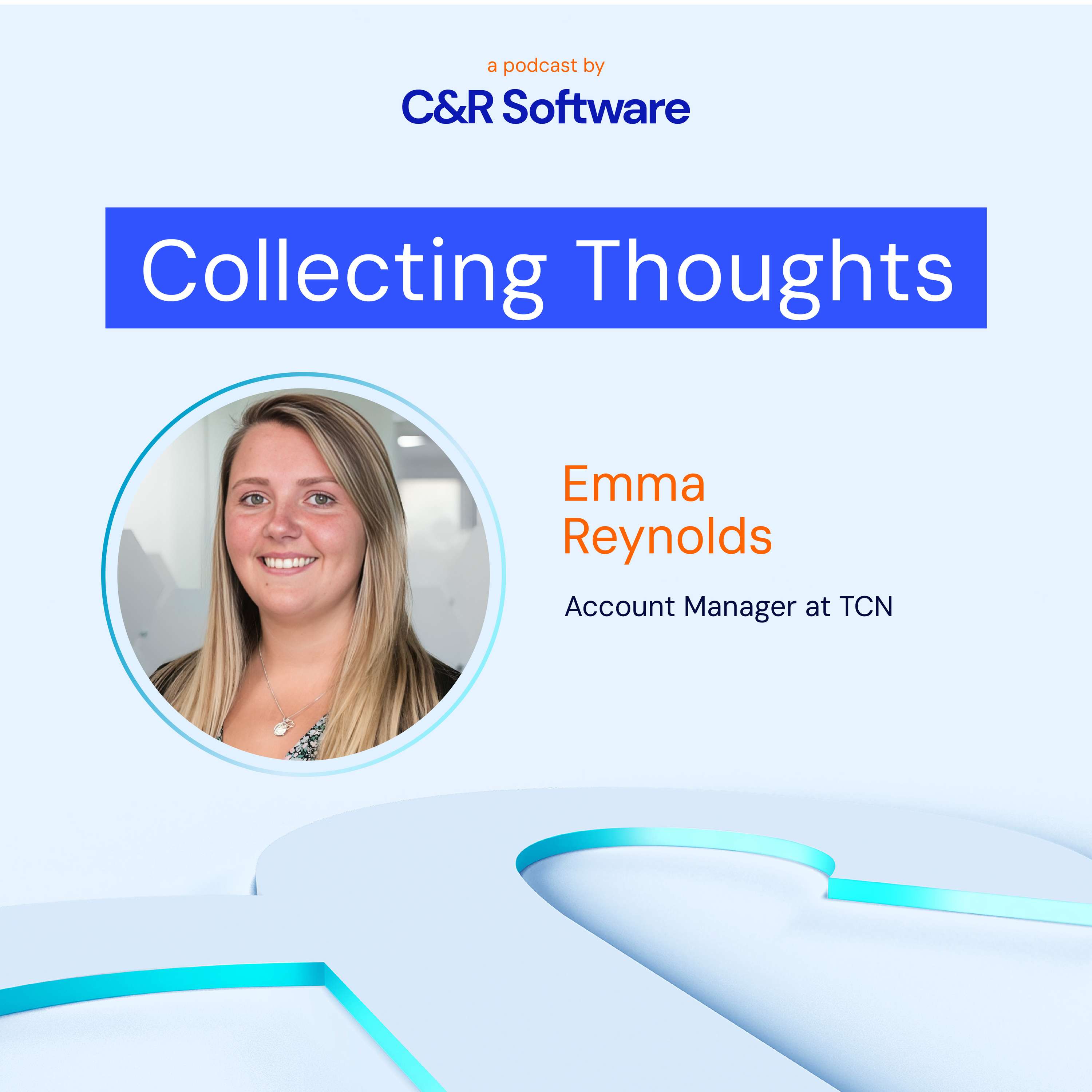This week on Collecting Thoughts, we had the pleasure of sitting down with Emma Reynolds to talk about her experience in the call center industry and how technology is revolutionizing how businesses handle their communications.
Guest Profile
Emma Reynolds serves as the UK Account Manager for TCN, a platform that offers call center solutions to businesses in verticals ranging from healthcare to banking. She's seen her fair share of communications challenges over the years but looks forward with optimism. Cloud-based systems, in particular, have drastically improved the efficiency and effectiveness of call centers, and Emma has a front-row seat to witness this transformation.
Striking a Balance Between Technology and the Human Touch
Emma's career in communications started in the debt collection industry ten years ago. It was a unique place to start, given call centers' competing priorities when reaching out to contacts. The ultimate goal is finding a solution to unpaid debts, but something must be said about personal interaction and relationship building.
While software companies can delegate everything to automated systems, that isn't an option for every organization. Those like the one Emma worked for a decade ago need to find a way to blend modern tools like AI with existing processes to maintain the level of service customers expect from them.
Today that looks like advanced cloud-based solutions with skill-based routing capabilities and chatbots that can assist with basic inquiries. These tools allow for quicker response times and more efficient resource use while still providing a personalized experience for customers.
"The call will be diverted to the correct person to handle that call... so say you could press one [if you had a certain need] and then you would be put through to that department. You're talking to the right person in the first instance, which I think is really important."
Leveraging Technology to Support Customer Service Staff
The benefits of automation in customer service for business are apparent. One often overlooked impact implementation has on the employees working within these systems. Emma explains how she's seen automation improve teams despite worries that 'AI is here to steal jobs.'
Changing to a dialer system that can blast out messages en masse significantly alleviated a burden that once drained human staff. Instead of manually dialing each number and waiting for a response, agents could be proactive and engage with more customers in less time. This increased productivity and improved morale as the workload was no longer as overwhelming.
"The productivity is above and beyond with technology."
Maintaining Compliance On a Large Scale
Privacy compliance is a big challenge for contact centers, regulated by several consumer protection laws such as the Telephone Consumer Protection Act (TCPA) and the General Data Protection Regulation (GDPR).
Companies must obtain consent before taking specific data processing actions and maintain records to prove their compliance. With the rise of automation, managing and tracking these consent records has become much more manageable.
Emma sees several practical applications for software in compliance management. One strategy she's currently engaged in deploying is scorecards—digital forms that capture relevant compliance data in real time. When agents make calls, they fill out the scorecard electronically, and it's automatically scored and sent to the appropriate team for review.
This process eliminates the need for manual tracking of consent records, reducing the risk of human error and making it easier to maintain compliance on a large scale.
"Once you actually see a demo, which is like 15 minutes of your time, it's so eye-opening. It makes you think, 'Why was I doing that before?' and 'Why was I wasting all that time doing all these different things, when it's so simple to just press a couple of buttons?'"
.png)
.png)



-Jan-20-2026-02-48-49-6447-PM.png?width=352&name=operationalize%20AI%20(15)-Jan-20-2026-02-48-49-6447-PM.png)

-Jan-28-2026-02-16-48-0429-PM.png?width=352&name=operationalize%20AI%20(14)-Jan-28-2026-02-16-48-0429-PM.png)